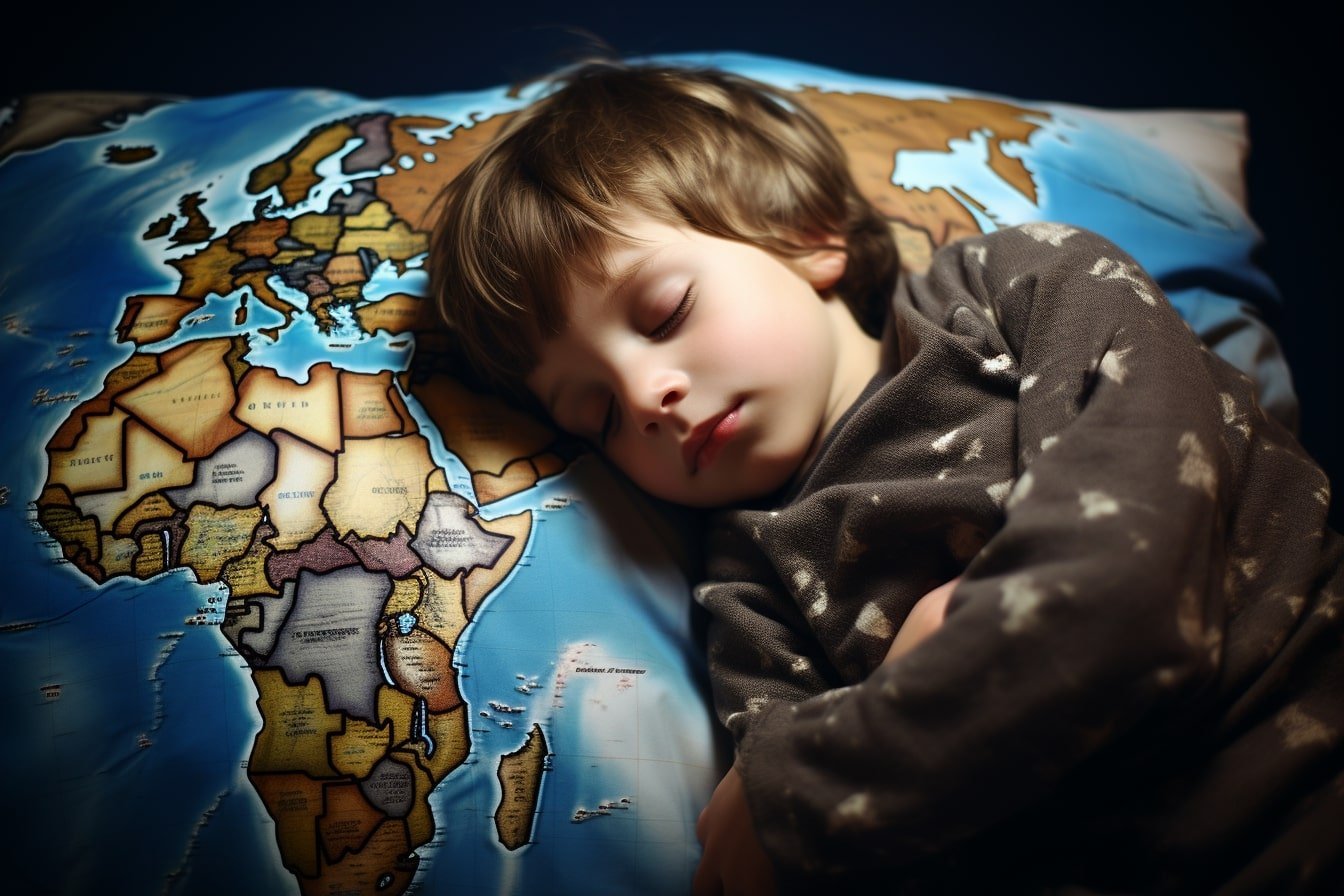Summary: A new study reveals that culture and geography significantly influence sleep patterns. Using data from Nokia smartwatches, the researchers analyzed 52 million logs over four years from 30,082 individuals in 11 countries.
The study highlighted that sleep-time varied per country, with high-GDP countries recording delayed bedtimes. Individual efforts like daily exercise can counterbalance cultural influences, with effects varying by country.
Key Facts:
- The study used extensive data from Nokia smartwatches, providing a detailed analysis of sleep patterns across 11 countries.
- Cultural and geographical factors significantly influence sleep patterns, with high-GDP countries and collectivist cultures recording delayed bedtimes.
- Daily exercise can counterbalance these cultural influences and improve sleep quality, but its effectiveness varies by country.
Source: KAIST
Sleep has a huge impact on health, well-being and productivity, but how long and how well people sleep these days has not been accurately reported.
Previous research on how much and how well we sleep has mostly relied on self-reports or was confined within the data from the unnatural environments of the sleep laboratories.
So, the questions remained: Is the amount and quality of sleep purely a personal choice? Could they be independent from social factors such as culture and geography?

A new study led by researchers at Korea Advanced Institute of Science and Technology (KAIST) and Nokia Bell Labs in the United Kingdom investigated the cultural and individual factors that influence sleep.
In contrast to previous studies that relied on surveys or controlled experiments at labs, the team used commercially available smartwatches for extensive data collection, analyzing 52 million logs collected over a four-year period from 30,082 individuals in 11 countries.
These people wore Nokia smartwatches, which allowed the team to investigate country-specific sleep patterns based on the digital logs from the devices.
< Figure comparing survey and smartwatch logs on average sleep-time, wake-time, and sleep durations. Digital logs consistently recorded delayed hours of wake- and sleep-time, resulting in shorter sleep durations. >
Digital logs collected from the smartwatches revealed discrepancies in wake-up times and sleep-times, sometimes by tens of minutes to an hour, from the data previously collected from self-report assessments.
The average sleep-time overall was calculated to be around midnight, and the average wake-up time was 7:42 AM. The team discovered, however, that individuals’ sleep is heavily linked to their geographical location and cultural factors.
While wake-up times were similar, sleep-time varied by country. Individuals in higher GDP countries had more records of delayed bedtime. Those in collectivist culture, compared to individualist culture, also showed more records of delayed bedtime.
Among the studied countries, Japan had the shortest total sleep duration, averaging a duration of under 7 hours, while Finland had the longest, averaging 8 hours.
Researchers calculated essential sleep metrics used in clinical studies, such as sleep efficiency, sleep duration, and overslept hours on weekends, to analyze the extensive sleep patterns. Using Principal Component Analysis (PCA), they further condensed these metrics into two major sleep dimensions representing sleep quality and quantity.
A cross-country comparison revealed that societal factors account for 55% of the variation in sleep quality and 63% of the variation in sleep quantity.
Countries with a higher individualism index (IDV), which placed greater emphasis on individual achievements and relationships, had significantly longer sleep durations, which could be attributed to such societies having a norm of going to bed early.
Spain and Japan, on the other hand, had the bedtime scheduled at the latest hours despite having the highest collectivism scores (low IDV).
The study also discovered a moderate relationship between a higher uncertainty avoidance index (UAI), which measures implementation of general laws and regulation in daily lives of regular citizens, and better sleep quality.
Researchers also investigated how physical activity can affect sleep quantity and quality to see if individuals can counterbalance cultural influences through personal interventions.
They discovered that increasing daily activity can improve sleep quality in terms of shortened time needed in falling asleep and waking up. Individuals who exercise more, however, did not sleep longer.
The effect of exercise differed by country, with more pronounced effects observed in some countries, such as the United States and Finland. Interestingly, in Japan, no obvious effect of exercise could be observed.
These findings suggest that the relationship between daily activity and sleep may differ by country and that different exercise regimens may be more effective in different cultures.
This research published on the Scientific Reports by the international journal, Nature, sheds light on the influence of social factors on sleep.
One of the co-authors, Daniele Quercia, commented: “Excessive work schedules, long working hours, and late bedtime in high-income countries and social engagement due to high collectivism may cause bedtimes to be delayed.”
Commenting on the research, the first author Shaun Sungkyu Park said, “While it is intriguing to see that a society can play a role in determining the quantity and quality of an individual’s sleep with large-scale data, the significance of this study is that it quantitatively shows that even within the same culture (country), individual efforts such as daily exercise can have a positive impact on sleep quantity and quality.”
“Sleep not only has a great impact on one’s well-being but it is also known to be associated with health issues such as obesity and dementia,” said the lead author, Meeyoung Cha.
“In order to ensure adequate sleep and improve sleep quality in an aging society, not only individual efforts but also a social support must be provided to work together,” she said.
“The research team will contribute to the development of the high-tech sleep industry by making a code that easily calculates the sleep indicators developed in this study available free of charge, as well as providing the benchmark data for various types of sleep research to follow.
About this sleep research news
Author: Yoonju Hong
Source: KAIST
Contact: Yoonju Hong – KAIST
Image: The image is credited to Neuroscience News
Original Research: Open access.
“Social dimensions impact individual sleep quantity and quality” by Meeyoung Cha et al. Scientific Reports
Abstract
Social dimensions impact individual sleep quantity and quality
While sleep positively impacts well-being, health, and productivity, the effects of societal factors on sleep remain underexplored. Here we analyze the sleep of 30,082 individuals across 11 countries using 52 million activity records from wearable devices.
Our data are consistent with past studies of gender and age-associated sleep characteristics. However, our analysis of wearable device data uncovers differences in recorded vs. self-reported bedtime and sleep duration.
The dataset allowed us to study how country-specific metrics such as GDP and cultural indices relate to sleep in groups and individuals. Our analysis indicates that diverse sleep metrics can be represented by two dimensions: sleep quantity and quality. We find that 55% of the variation in sleep quality, and 63% in sleep quantity, are explained by societal factors.
Within a societal boundary, individual sleep experience was modified by factors like exercise. Increased exercise or daily steps were associated with better sleep quality (for example, faster sleep onset and less time awake in bed), especially in countries like the U.S. and Finland.
Understanding how social norms relate to sleep will help create strategies and policies that enhance the positive impacts of sleep on health, such as productivity and well-being.






